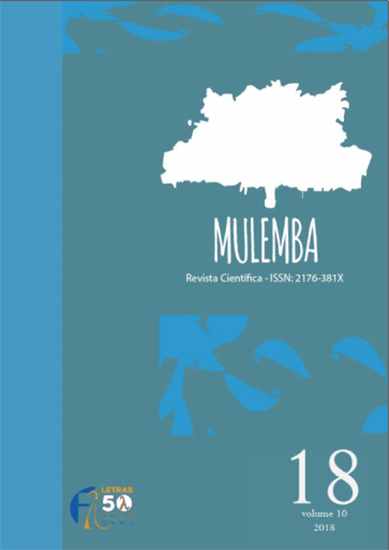Interview with Pedro Pereira Lopes
DOI:
https://doi.org/10.35520/mulemba.2018.v10n18a15406Keywords:
Literature, Childhood, Mozambique.Abstract
Digital interview conducted with the Mozambican writer Pedro Pereira Lopes on September 25, 2017. He completed his undergraduate degree in Business Administration, master's degree in public policy from the Beijing University Governance School, and is currently a research professor at the Higher Institute of International Relations in Maputo (Mozambique). In addition to his academic and professional background, he draws his attention as a storyteller and poet, an exercise that interests us specifically. He has five titles published in Mozambique, four for childhood and youth, such as O homem dos 7 cabelos (2012), Kanova e o segredo da caveira (2013), Viagem pelo mundo num grão de pólen e outros poemas (2014), A história do João Gala-Gala (2017) and for the adult audience O mundo que iremos gaguejar de cor (2017). Two of his titles Kanova e o segredo da caveira (2017) and Viagem pelo mundo num grão de pólen e outros poemas (2015) were published by the Brazilian publisher Kapulana, located in the city of São Paulo, in partnership with the Portuguese School of Mozambique.
Downloads
Downloads
Published
Issue
Section
License
Authors who publish with this journal agree to the following terms:
- Authors retain copyright and grant the journal right of first publication with the work simultaneously licensed under a Creative Commons Attribution License that allows others to share the work with an acknowledgement of the work's authorship and initial publication in this journal.
- Authors are able to enter into separate, additional contractual arrangements for the non-exclusive distribution of the journal's published version of the work (e.g., post it to an institutional repository or publish it in a book), with an acknowledgement of its initial publication in this journal.
- Authors are permitted and encouraged to post their work online (e.g., in institutional repositories or on their website) prior to and during the submission process, as it can lead to productive exchanges, as well as earlier and greater citation of published work (See The Effect of Open Access).

